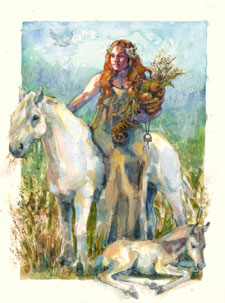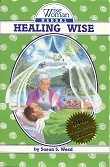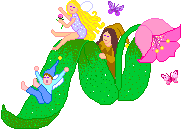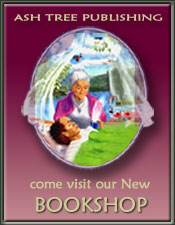Herbal medicine is people’s medicine. Herbal medicine is the primary medicine of most people on this planet, right now. It’s not something old and dusty. It's not a bunch of doctors and chemists figuring out how to use herbs like drugs. Herbal medicine is a 3-year-old picking plantain and putting it on a skinned knee or an insect bite. Herbal medicine is the medicine of women and children. It is the medicine of the earth. It’s medicine that’s free. It’s not something that must be studied before it can help you. Start with one plant. Approach herbal medicine directly, hands on, in the back yard with your children.
Herbal medicine is the medicine of women and children. It is the medicine of the earth. It’s medicine that’s free. It’s not something that must be studied before it can help you. Start with one plant. Approach herbal medicine directly, hands on, in the back yard with your children.
You can be your own herbalist, if you keep it simple. First, divide herbs into four categories: nourishing, tonifying, stimulating/sedating, and potentially poisonous. Use nourishing herbs daily, tonifying herbs regularly, stimulating/sedating rarely, and potentially poisonous herbs almost never.
Nourishing herbs are nutritive plants such as kale, garlic, dandelion greens, rolled oats, plantain seeds, blueberries, and edible weeds -- the powerhouses of nutrition. Nourishing plants can be used in any quantity for any length of time.
Nutritive herbs are rich in minerals and vitamins. One hundred grams of dandelion (about ½ cup of greens) has 14,000 IU of vitamin A.
Tonifying herbs are like exercise; they include such plants as burdock, dandelion root, yellow dock, motherwort, ginseng, astragalus, chaste berry, schisandra. One of the benefits of exercise, of tonification, is that it helps us when we’re stressed. You’re not necessarily going to feel better if you exercise once for ten minutes. But, if you exercise for ten minutes every day, after several months, you will notice changes.
What’s confusing is the difference between tonifying and stimulating herbs. When we take tonics, we feel better and have more energy. When we take stimulating herbs, we also feel better and have more energy, but only when we are stimulating ourselves. There are immediate uncomfortable effects when we lack our stimulant, but no decrease in health if we stop taking the tonic. Ginger and cinnamon certainly have their uses. But they don’t build health.
Over the long run, stimulants erode our health. Nourishing ultimately gives us more energy, though it will take a few days to feel it, whereas the effects of stimulants are immediate. My apprentices drink two or more cups of nourishing herbal infusion daily. And after ten days, their skin is nicer, they have more energy and stamina, they stop craving sweets, and they feel a lot better over all
With nourishing and tonifying herbs in our daily lives, we have solid energy that adds to health instead of subtracting from it. Instead of raiding my storehouse with stimulants, I build my reserves with nourishing herbal infusions.
I recommend that people drink nourishing herbal infusions on a daily basis. Everything will follow from there.
I consider dark chocolate an important health food.
Stimulating/sedating herbs are some of the most widely used of all herbs. They include coffee, tea, cinnamon, ginger, hops, kava kava, licorice, passion flower, skullcap, valerian, willow, and wintergreen. They are best used when there is a specific need: A pre-diabetic might choose to take a teaspoonful of cinnamon daily. Ginger compresses are great, and I enjoy it in my food, occasionally. The point with these herbs is to avoid daily use.
The last category is potentially poisonous herbs, ones we only in extreme situations, to ward off death. I include goldenseal, poke root, cayenne, rue, sweet clover, and wormwood in this category.
Goldenseal is a broad spectrum antibacterial. It kills more gut flora than antibiotics. It negatively impacts kidney, liver, and gut function. In forty years as an herbalist, I have used it only once: externally. It is overused, to the detriment of people's health, and to the near extinction of the plant itself.
In "Healing Wise" I discuss different medical traditions; The Wise Woman Tradition, the Heroic Tradition and the Scientific Tradition. They overlap, but, in general, the Heroic tradition is called alternative medicine. It dates back to ancient Greece and the idea that there are four "humors." Disease occurs due to disruption of the humors. George Washington got the flu. The best healers of the day, who were heroic healers, puked him. He didn’t get better, so they purged him. He got worse, so they bled him. He got worse. They puked, purged, and bled him again. He died.
That was the best medicine of the day. Today, we think of the humors as toxins, and people continue puke, purge, and poke, only now, we call it "cleansing." My experience has shown me that cleansing does no good and can cause great harm. The heroic tradition prefers stimulating, sedating, and potentially poisonous herbs; and they generally use complicated mixtures of herbs. They want to be the heroes. The problem with these very potent herbs, however, is that they must be given in very accurate doses. This is the beginning of the pharmaceutical industry. The active poisons were extracted from plants, and crude plant drugs became "safe" pharmaceutical drugs.
That is the Scientific tradition, which tell us that our bodies are machines and they need to be fixed. In the scientific tradition, health is a measurement. We eat by the numbers. The advantage to treating bodies as machines is that it allows us to deal with intractable problems. My sweetheart’s grandfather died of a heart attack at 57. His father had his first heart attack at 57, survived that one, and died of a second one at 59. My sweetheart, at 59, had a triple bypass, not a heart attack. Now, you might say, Well, couldn’t you have done something to prevent that, Susun?” No. Very, very high cholesterol runs in his family. But consider this: The surgeon said to him, afterwards, Your heart was getting about a third of the blood it needed; it ought to have been damaged or even dead. But you have one of the healthiest hearts I've ever seen. What's up?” He's been drinking nourishing herbal infusions for twenty years. He doesn't eat any vegetable/seed oils, doesn’t take supplements, does do yoga, and leads a vigorous, healthy life.
My friend, Ellen, was hit by a tractor trailer, which ran a red light. Her neck was broken in three places. She was picked up by a helicopter, and taken to a major medical center, where they took a piece of her thigh bone and fused it into her neck. She can walk -- not well, but she can walk. I couldn’t have done that with comfrey, love, or my drum. But two weeks later, everybody in the hospital wanted to know what we were doing because Ellen was healing so rapidly. That's comfrey, love, and my drum. I’m one of the people who coined the term, "integrated medicine." I want all three traditions to be recognized for their strengths and weaknesses, so each person can have the health care that is best suited to them and their situation.
The third tradition is the oldest tradition of them all and the tradition that I speak for: the Wise Woman tradition. in the Scientific tradition (linear), we fix the broken machine; in the Heroic tradition (circular), we cleanse the filthy temple. In the Wise Woman tradition (spiralic), we nourish the unique wholeness of each individual. Nourishment certainly has to do with what we eat, but it is more. Everything we take in -- sights, sounds, thoughts, stories, smells, everything -- becomes part of us. Many people who eat well are on a diet of junk food when it comes to what they take in other than food. No, I don't watch television.
When you read about herbal medicine, for instance, or see a doctor or healer, you could ask yourself: "Which tradition is this writer or healer working with?. The scientific tradition says herbs are dangerous; they are crude drugs, drugs with green coats. Drugs have been made from herbs; but that doesn’t mean all herbs are drug-like. The heroic tradition says herbs -- like cayenne, goldenseal, and lobelia -- cleanse. I teach my students that cleansing, in terms of a living body, really means damage and destroy. In the Wise Woman tradition, we start from the understanding that we are created in perfection. We do not fall from that perfection, but we fall from our belief in that perfection. The heroic tradition, encourages us to berate ourselves, to believe that any health problem is our own fault. There is power in those beliefs, but little healing, to my mind. To me, healing is wholing. To heal is to make someone more, not less. I strive not to take away, but to add, and let what isn't needed go as it will, and it will.
We recognize our wholeness/health/holiness when we accepting ourselves exactly as we are, with love and compassion. In the Wise Woman tradition, we nourish what we want to be, rather than rejecting what we don’t want. We trust our bodies, we trust the earth, we trust our gut feelings.
Cholesterols connection to heart attacks has never been proven. And we have virtually no idea what healthy cholesterol is in a post-menopausal woman. Remember, my sweetheart incredibly high cholesterol but never had a heart attack. Inflammation has been shown, over and over, to lead to heart attacks. You may want to consider reducing inflammation instead of cholesterol. One of the best ways to do that is to stop eating oils are pressed from seeds, and to start eating olive oil, organic butter, and the natural fats from organically-raised, pastured animals.
Canola oil, flax oil, hemp oil, evening primrose oil, soy oil, sesame oil, almond oil, corn oil -- all considered healthy, but examples of the oils I avoid when I want to avoid inflammation. And inflammation underlies and supports heart attack, joint pain, dementia, cancer.
The scientific tradition, says "Measure and fix." For optimal health follow an anti-inflammatory diet, the first step is to remove seed oils from your diet. Then, reduce and remove stimulants – coffee, black pepper, cayenne, ginger, cinnamon, soda pop. Third, reduce and remove all sources of high- fructose corn syrup. Meanwhile, introduce optimally nutritive foods: nourishing herbal infusions, plain yogurt, fermented vegetables, whole grains, miso, seaweed. Give yourself at least a year to make these changes. You are already perfect; and you can create a greater perfection as you nourish yourself.
Slippery elm is wonderful herbal ally. I make lozenges by mixing slippery elm bark powder with a little honey. I stir until it clumps up, adding more honey if needed. It's just right when it's like pie dough. Using my hands, I make balls the size of hazelnut or bigger, and roll them in more powdered slippery elm so they don’t stick to each other. I store them in a small metal tin; and don't leave home without it. Slippery elm is so safe that you can dissolve a ball in your mouth as often as you want, any time you feel any distress. If you’re working with an ongoing condition, at least two a day is good. Slippery elm restores the lining of the intestines, prevents any agents within the body from disturbing the intestines, and neutralizes any poisons that are present in or around the intestines.
 A great ally that you could grow is comfrey. There is some controversy about the use of comfrey root, so I restrict myself to the leaf. Also, I'm careful to use garden comfrey, which is less problematic. To make a nourishing herbal infusion with comfrey, weigh out one ounce of dried leaves and put that in a quart canning jar. Fill it to the top with boiling water. Screw a tight lid on it and let it steep for at least four hours -- or up to nine hours at cool room temperature. Strain the herb out, squeezing it well. The liquid is what we drink; I put the spent herb in the compost. Comfrey leaf infusion can be drunk hot, with a spoonful of honey, or over ice. You can also heat it up and pour it over a mint tea bag. Comfrey gives the lining of the lungs and the intestines flexible strength and health.
A great ally that you could grow is comfrey. There is some controversy about the use of comfrey root, so I restrict myself to the leaf. Also, I'm careful to use garden comfrey, which is less problematic. To make a nourishing herbal infusion with comfrey, weigh out one ounce of dried leaves and put that in a quart canning jar. Fill it to the top with boiling water. Screw a tight lid on it and let it steep for at least four hours -- or up to nine hours at cool room temperature. Strain the herb out, squeezing it well. The liquid is what we drink; I put the spent herb in the compost. Comfrey leaf infusion can be drunk hot, with a spoonful of honey, or over ice. You can also heat it up and pour it over a mint tea bag. Comfrey gives the lining of the lungs and the intestines flexible strength and health.
Comfrey leaf infusion is good for people who have quit smoking, or even if they are still smoking. Comfrey leaf infusion is also a tremendous ally to bone flexibility and strength. It also heals and strengthens tendons and ligaments. Remember comfrey: it contains proteins that create short-term memory cells.
Teas and infusions are generally safe; tinctures are more concentrated and thus less safe, and capsules are the least safe of all. In fact, herbs in capsules are the most likely to create horrible side-effects. I tell my students to completely avoid herbs in capsules. Let’s go back to our four categories – nourishing herbs contain vitamins and minerals, proteins and nutritive factors that are easily soluble in water and vinegar, but not alcohol. Stimulating/sedating and potentially poisonous herbs contain active ingredients that are more soluble in alcohol than in water. Thus, infusions and vinegars are nutritive, while tinctures are more drug-like.
An infusion is a large amount of dried herb brewed for a long time. A tea is a small amount of fresh or dried herb brewed for a short time. To make an infusion: Buy dried herbs in bulk -- my favorites for nourishing infusions are stinging nettle, oatstraw, red clover, linden, and comfrey leaf -- and place one ounce of dried herb in a quart canning jar; fill with boiling water; screw on a tight lid; steep for at least four hours; strain; drink the liquid hot or cold; refrigerate what's left and consume it within 36 hours. A quart of nettle infusion can have 2000 mg of calcium; and we could easily consume that in a day. A dropperful of nettle tincture would contain, at the most, 3-5 mg of calcium.
The definition of a tincture is an alcohol extract. The active principles in plants -- alkaloids, glycosides, volatile oils, and resins -- generally dissolve poorly in water. Tinctures can make a plant act more like a drug, and allow finer control over the dose.
The first book, I wrote, in 1987, is Wise Woman Herbal for The Childbearing Year: it covers the two months before pregnancy, the nine months of pregnancy, and the two months after pregnancy, including herbs for increasing fertility and herbal birth control that really works. It's now in its 37th printing; and has been translated into German, French, and Japanese. My second book, the big green book for everyone, is Healing Wise: It explains the three traditions of healing and introduces you to the uses of seven of my favorite herbs -- Dr. Dandelion, biker Burdock, sexy Oatstraw, the little star lady Chickweed, Sister Spinster Stinging Nettle, the seaweed mermaids, and shy Aunt Violet. When I realized my mother was not going to give me a book on menopause, I figured I better find out all I could and write it down, so when I was menopausal and couldn't remember anything, I could consult it! That was Menopausal Years, The Wise Woman Way, which I revised in 2002 and brought out as New Menopausal Years the Wise Woman Way. It was a finalist for the best health book of 2003. And, my favorite book: Breast Cancer? Breast Health! the Wise Woman Way, because women don’t die of hot flashes, but they do die of breast cancer -- and as a result of mammograms.
Susun Weed

Healing
Wise
 by Susun
S. Weed
by Susun
S. Weed
Introduction by Jean Houston.
Superb herbal in the feminine-intuitive mode. Complete instructions for using common plants for food, beauty, medicine, and longevity. Seven herbs -- burdock, chickweed, dandelion, nettle,
oatstraw, seaweed, and violet -- are explored in depth.
A Special Tenth Anniversary edition of this
classic herbal, profusely illustrated. 312 pages.
Read a Review
Order HEALING WISE in our Bookshop
I just started reading your book, Healing Wise. Your
humor and approach to life seem so "down-to-earth",
just like your favorite powerful weeds. Thank you for sharing
and nourishing! ~ Diane
Using Herbs Simply and Safely - 2 CD Set
 Using Herbs Simply and Safely
Using Herbs Simply and Safely
2 CD Set
Susun S Weed – HerbFest 2000
(Length - 1 Hour/50 Minutes)
$22.50
Susun Weed discusses homeopathy, allopathy and simplifies and categorizes herbs into four groups for safe use.Are herbs natural and therefore safe? Or are herbs really drugs in green guise and therefore dangerous? Are standardized extracts safer? Are combinations of herbs necessary? What about homeopathy? Whether your interest in herbs is new or well-seasoned, this talk will help you understand how to get the most out of herbal medicine -- with the least risk.
Order Using Herbs Simply and Safely in our Bookshop








